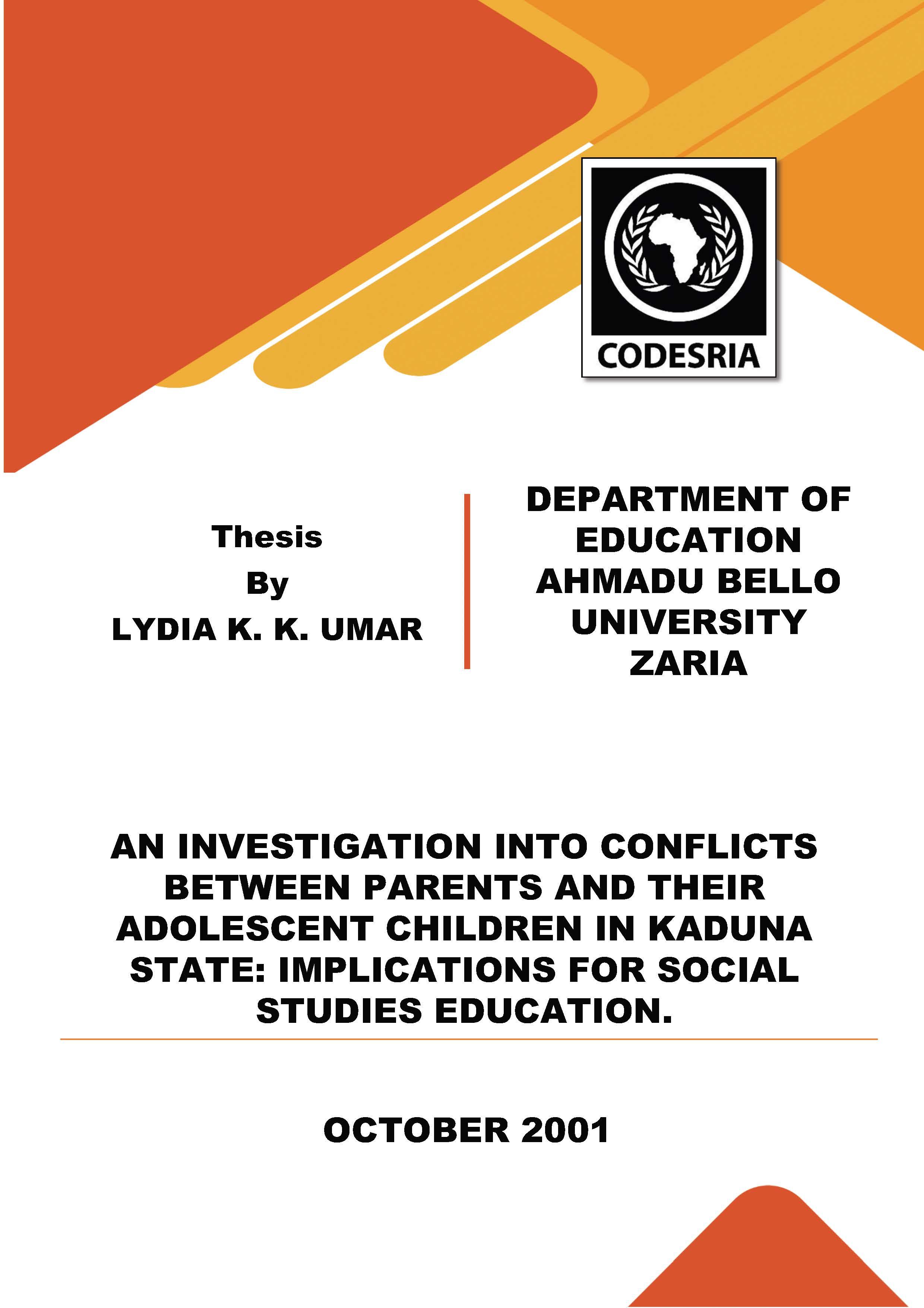AN INVESTIGATION INTO CONFLICTS BETWEEN PARENTS AND THEIR ADOLESCENT CHILDREN IN KADUNA STATE: IMPLICATIONS FOR SOCIAL STUDIES EDUCATION.
Keywords:
INVESTIGATION, CONFLICTS, PARENTS, ADOLESCENT CHILDREN, KADUNA, STUDIES EDUCATIONSynopsis
This study was carried out to investigate the nature of conflict between parents and their adolescent children despite the students exposure to Social Studies Curriculum for not less than eight years of Primary and Junior Secondary School. The investigation involved identifying the concept and areas of conflicts. It was also to ascertain individual and home factors that cause such conflicts as well as the conventional approaches used by parents in an attempt to resolve them.
The population of the study was third year students of Goverrunent secondary schools in Kaduna State and their parents. At the time, the students were between 15 and 17 years old.
Out of a total of 3,050 students from 12 schools (10 Day and 2 Boarding Schools) each representing the 12 Educational Zones of Kaduna State, 300 were picked as study sample. The proportionate stratified random sampling technique was used.
The instrument used comprised of 2 sets of questionnaires, titled:
1. Parenting Effectiveness Questionnaire (PEQ), made up of three (3) sections, was administered to the students.
2. Adolescent Discipline Study Questionnaire (ADSQ), made up of four (4) sections, was administered to the parents .
The reliability of the instruments of r= 0.6985 was established using the split half method and simple correlation. The validity of the questionnaires was also determined through adaptation of items from three (3) fully validated and used instluments, experts' sc1utiny and a pilot study. Ten (10) hypotheses were stated for testing . at 0.05 level of significance (Table 5.2).
The data collected was analysed using stati_stical tools of T-Test, Correlation- Coefficient and One-Wa)'. Analysis of Variance (ANOVA). The results show that 7 out of 10 hypotheses were rejected, while hypotheses 5,6 and 8 were accepted. and retained because of the non-significant relationship or differences existing between the two variables tested .
In general tenus, the study established that significant differences exist between parents and their adolescent children as follows:
• Parents' views and choice/ recognition of areas of conflict clifferecl from those oftheir adolescent children.
• Girls tended to have fewer areas of conflict with parents than boys a Boarding school adolescent children tended to have fewer conilicts with their parents than adolescent students in Day schools.
• The socio-economic status of parents did not really influence the areas or rates of conflict.
• The style of discipline did not influence the frequency of parent - adolescent conflict.
• Parents' gender has no bearing on their choice of approaches to resolving conflict.
• Parents' level of education had significant impact on the control and prevention of conflict with their adolescent children.
• Intact and single families probably experience the same types of conflicts withJheir adolescent children.
• Parent-adolescent conflicts had negative effect on the students'performance in social studies.
• Respondents in urban areas had more conflicts than their counterparts in rural areas.
Based on the findings a proposed Social Studies Syllabus is provided as a tool for fostering harmonious relationship at home through the school (Appendix E).
Replicating this research in other States, longitudinal study over the entire period of adolescence and research involving non-literate parents and adolescents were also recommended.
Downloads






